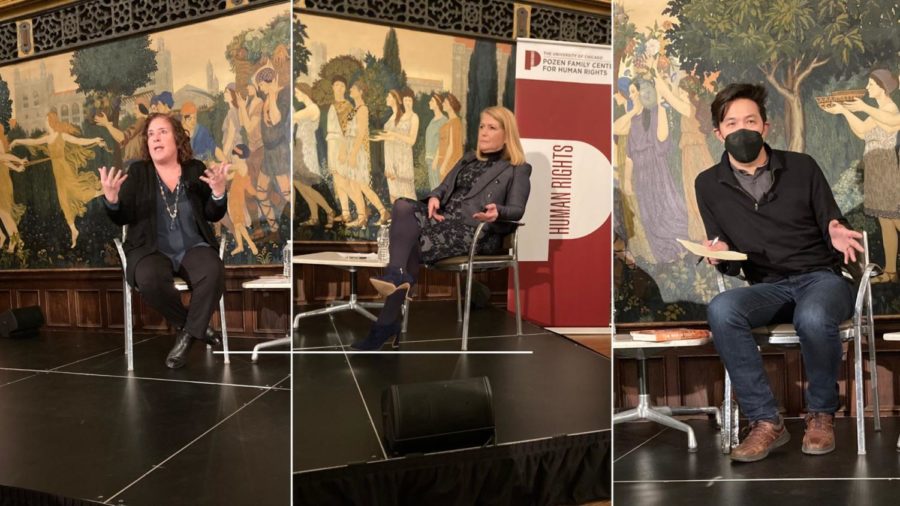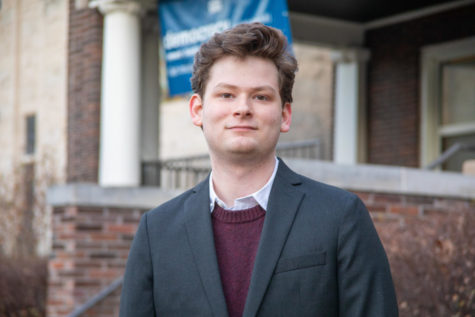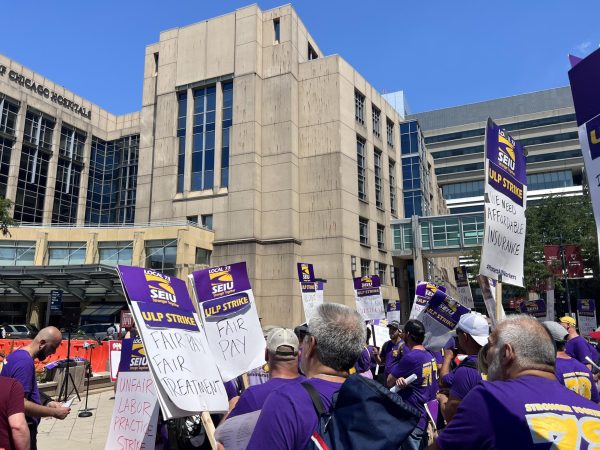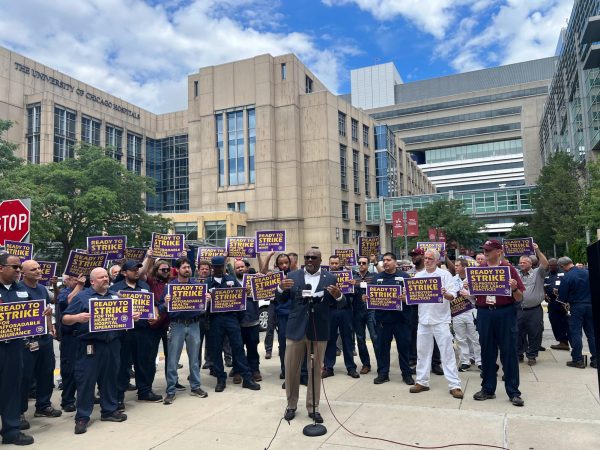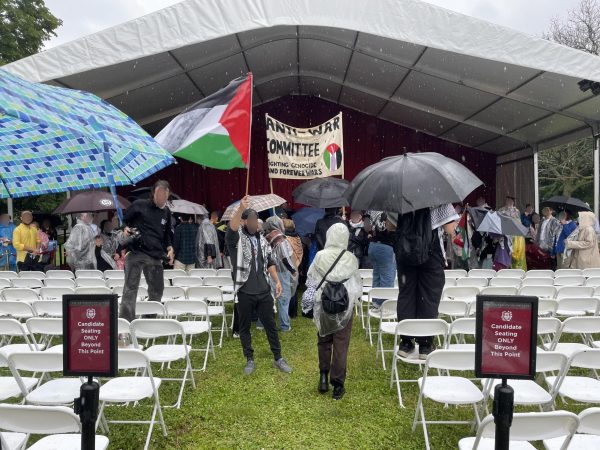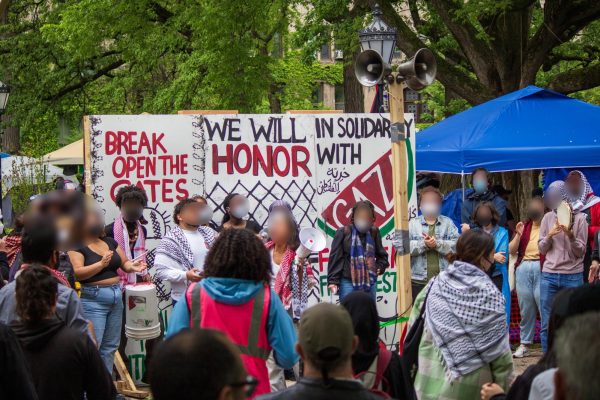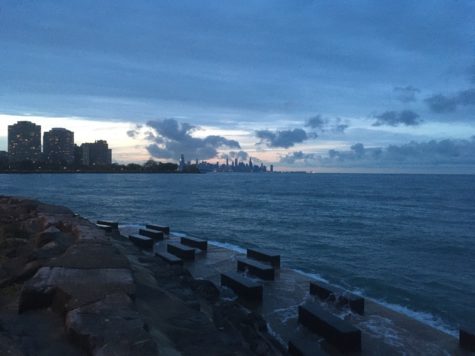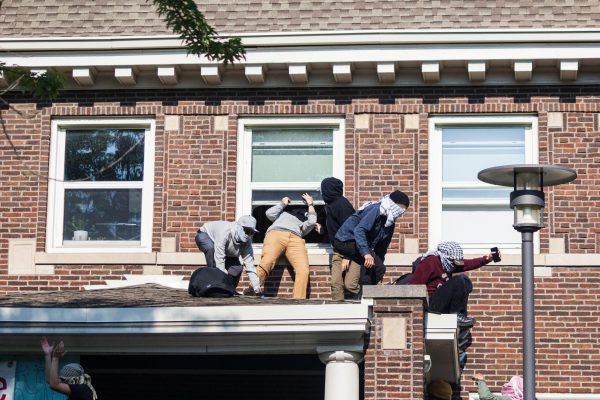Pozen Center Hosts Discussion on Guantanamo’s Legacy, Battle Against Torture
UC Santa Barbara sociology professor Lisa Hajjar and Cheryl Bormann, defense counsel to a Guantanamo detainee, analyzed the legal basis of the detention camp and its ramifications.
Lisa Hajjar, Cheryl Bormann, and Darryl Li discuss Guantanamo’s ramifications.
January 7, 2023
Content warning: This article mentions torture and sexual violence.
On November 8, the Pozen Family Center for Human Rights hosted a panel on the legal battle against the use of torture by the United States government, with a focus on the Guantanamo Bay detention camp. The panel, titled “Guantanamo’s Legacy: From a Legal Black Hole to a Battleground in the Fight Against Torture,” featured panelist Lisa Hajjar, department chair of sociology at the University of California, Santa Barbara; panelist Cheryl Bormann, trial lawyer and former defense counsel to Guantanamo detainee Walid bin ‘Atash; and moderator Darryl Li, assistant professor of anthropology in the College and associate member of the Law School.
The Guantanamo Bay detention camp was established by President George W. Bush in 2002 as a special military prison to house suspected terrorists. Since its inception, the camp has faced sharp criticism for various human rights violations, including the use of torture to interrogate detainees.
Hajjar is the author of the recently released book The War in Court: Inside the Long Fight Against Torture, which chronicles the legal history of the government’s post–9/11 torture policy. Her project for The War in Court started in 2013 when she made her first of 14 visits to Guantanamo Bay to interview detainees and observe the camp’s military commissions. She also extensively interviewed lawyers central to Guantanamo litigation, which is how she met fellow panelist Bormann.
In her opening remarks, Hajjar contextualized the establishment of the detention camp with the Bush administration’s efforts to expand presidential powers, a policy she called the “new paradigm.”
“[An] aspect of the new paradigm was to rationalize the ability to wage war outside of the rules of war,” Hajjar said. The administration “reinterpreted federal and international laws” to create a legal justification for torture as an interrogation tactic, and administration officials sought to exploit a perceived gap in the jurisdiction of federal courts to establish an “interrogation laboratory,” settling on the Guantanamo Bay Naval Base in Cuba.
“Guantanamo was selected because they had already decided…that coercive interrogation would be necessary and effective and [they] wanted to catch people and be able to interrogate them for long periods of time where they would not have access to lawyers or where federal courts would not have jurisdiction,” Hajjar said.
Guantanamo Bay was in fact within the jurisdiction of federal courts, as was affirmed by the Supreme Court ruling in Rasul v. Bush. Furthermore, in Hamdan v. Rumsfeld, the Supreme Court ruled that the Geneva Conventions, which prohibit torture, applied to all persons detained by the U.S. government.
Hajjar explained that after a complicated legal process, all Guantanamo detainees were arraigned in a military commission in May 2012. As of November 2022, the case has only progressed with pretrial hearings, given the reluctance of actors such as the CIA to provide information about former prisoners.
After Hajjar’s speech, Cheryl Bormann explained her personal role in the fight against torture, including her experience as a public defender in Chicago, where she sought to hold the Chicago Police Department (CPD) accountable for its use of coercive interrogation.
“The Chicago Police Department…in the ’70s through the ’90s was involved in systemic and systematic torture of men of color to get confessions on very high-profile cases. Many of those men were later exonerated, and I represented two of them.”
Because of cases like Bormann’s, Illinois passed a law that requires all criminal confessions to be videotaped. Afterward, Bormann continued her fight to end torture by representing 9/11 defendant and Guantanamo Bay detainee ‘Atash. She stated that the Guantanamo case has continued to this day because “the United States government made huge errors” in assuming it had a legal right to torture its prisoners.
Bormann said her client had been the victim of acts such as anal rape, force-feeding, and sleep deprivation. She then explained where the government made missteps when attempting to prosecute Guantanamo detainees. “What the United States government then did was open [its torture] to being discovered by lawyers, and that’s where the situation got prolonged,” Bormann said.
Bormann related the government’s efforts to conceal information about her client’s detention to the efforts of the CPD to prevent the videotaping of confessions, and she concluded by expressing hope that the Guantanamo cases would teach Americans a lesson, as her CPD cases did. However, she also noted it was likely that another tragedy like 9/11 could trigger what she considers another government overstep like the Guantanamo detention camp.
Li then moderated a discussion between Hajjar and Bormann on topics relating to both the nature of torture and the legal battles surrounding it. He provided the context that most detainees at Guantanamo Bay were never charged with a crime by the military commission and that Guantanamo Bay is only a single node in a global system of carceral sites operated by both the U.S. and its allies.
In response to Li’s questions, Hajjar and Bormann agreed that torture is inherent to imprisonment and that the Guantanamo legal battles lacked the public support and participation of other social movements. Hajjar also pointed out that despite rumors of a plea bargain in the Guantanamo case, the detainees would still likely never receive justice for their treatment while in U.S. custody.
“For people who want a better understanding of the present, these stories—this 20-year struggle on the legal terrain over torture and rights and the limits of presidential power—are an important piece of what makes the present what it is. I hope that people will learn a lot about things that they may not have heard anything about but have really shaped the way in which political and legal circumstances in this country now are,” Hajjar said.


